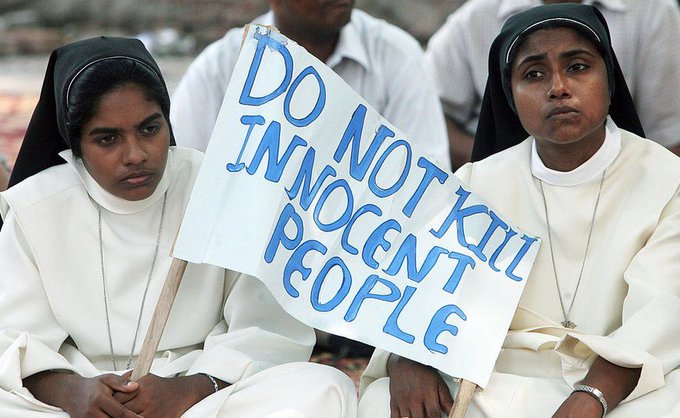
Chris Lange, FISM News
[elfsight_social_share_buttons id=”1″]
Indian Prime Minister Narendra Modi broke his months’-long silence on ethnic violence in Manipur on Thursday, the Associated Press reported. Modi told reporters ahead of a parliamentary session that “the guilty will not be spared” in response to a shocking video showing a mob sexually assaulting two women. The video, taken in May, surfaced on social media late Wednesday, sparking mass outrage.
The women in the video were identified as members of Manipur’s predominantly Christian Kuki-Zo minority.
UCA News reported that Anti-Christian violence in the northeastern Indian state is among the worst in the country under Modi’s stringent anti-conversion laws, citing a memorandum published by the New Delhi-based United Christian Forum (UCF) The UCF documented more than 100 deaths and the destruction of nearly 400 churches in Manipur in the past two months. The Christian persecution monitoring group said that violent attacks against Christians have nearly doubled in the past year. UCF identified 400 incidents of persecution across 23 states in India in the first half of 2023. By comparison, 274 such attacks were reported during the same period in 2022.
“The pattern followed is the same,” the report states. “[A] mob accompanied by police arrives at a place of worship, disrupts the prayer meeting and beats the faithful, including women and children, and police file cases under the draconian law.”
According to the forum, three acts of anti-Christian violence were committed per day in the month of June. The numbers are all the more shocking given that Christians represent 40% of India’s population of 3 million.
ANTI-CONVERSION LAWS
According to the UCF, anti-Christian violence surged when Prime Minister Narendra Modi came to power in 2014 and has worsened under his sweeping anti-conversion laws.
There are currently 63 pending cases filed against Christians on “false allegations of conversion,” the report said. Nearly 35 pastors have been imprisoned under the law, the majority of whom are “repeatedly denied bail.” Those who do manage to secure bail languish in prison due to what the organization described as “bureaucratic complacency.”
The report explains that, in most cases, police refuse to file charges against the perpetrators, who typically belong to India’s Bharatiya Janata Party, representing what the forum described as “fringe elements of Modi’s political outfit.”
The UCF said that several delegations have met with Modi and President Draupadi Murmu, to no avail, and that even a call from India’s highest court to end violence against Christians and other minorities fell “on deaf ears.”
“I think the attacks have really been driven…by the central government,” David Curry, president and CEO of Global Christian Relief recently told CBN News. “The BGJ party has made being a Christian something that is not considered part of India. It seems as though their message is ‘If you are not a Hindu, you are not an Indian’ and this has allowed this escalation of violence against Christians and Christian churches.”
While India’s Christians bear the brunt of religious persecution, Muslims have also been targeted.
In May, Hindu ultranationalist groups affiliated with BGJ reportedly launched “an intimidation campaign” against Muslims in India’s northwestern Uttarakhand state. According to Mint, a Delhi-based news outlet, the BGJ party served eviction notices to Muslim business owners and vandalized their shops. Several Muslim families fled the region amid violent demonstrations, per the outlet.
India ranked 11th in Open Doors’ 2023 “Watch List” for religious persecution, with a designation of “extreme” persecution levels.
